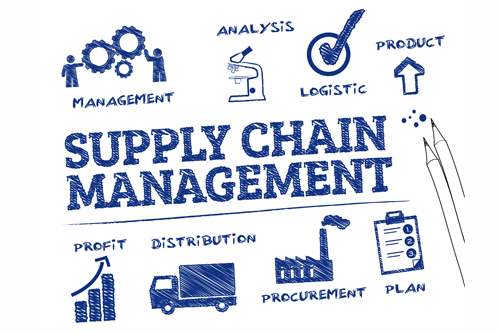Post Graduate Diploma in Human Nutrition and Dietetics
Human Nutrition and Dietetics offers excellent training to Nutritionists and Dieticians, Dietetic Technicians and Technologists who will use science to promote healthy eating habits for both preventive and curative management of nutritional disorders. Diet therapy, nutritional research, counseling and education are all within the realm of the nutrition and dietetics profession. It is also a comprehensive introduction to the important role nutrition and diet play in maintaining health. With the huge rise in diet related illnesses such as obesity, type II diabetes and cardiovascular disease we face important choices in terms of diet and nutrition on a daily basis. It is also important to understand the role nutrition plays in growth and development throughout our lives.
The course aims at developing basic understanding about nutrition, its effect on human health and newer advances in food technology. This course encompasses physiological, biochemical and social aspects of food and discusses relationship between metabolites and human health. Moreover, the course is focused on the advances in the most emerging area of applied science of Nutraceuticals (where food is the medicine). The knowledge of nutrition under extreme climate conditions, space nutrition, and sports nutrition empowers students’ knowledge and skills to utilize food as a powerful tool for physical, mental, and social wellbeing.
Course Content
Module1: Introduction to Food, Nutrition and Dietetics
- Introduction to food, nutrition and dietetics as a profession.
- History of nutrition and dietetics.
- Contemporary issues in food, nutrition and dietetics.
Module2: Introduction to Nutrition Epidemiology
- Definition of epidemiology and epidemiological concepts.
- Disease occurrence and progression.
- Measurement of morbidity, mortality and fertility.
- Measures of morbidity, mortality and fertility.
- Disease causal models; the Person-Time-Place model and Host-Agent Environment model.
Module4: Introduction to Food Microbiology
- Role and significance of microorganisms in food.
- Intrinsic and extrinsic factors affecting microbial growth.
- Incidence and types of micro-organisms in foods.
- Control of microbial growth factors.
- Microbial contamination in; meat and meat products, poultry and sea-foods, fruits and vegetables, dairy and cereal products.
- Storage of various food products.
- Food poisoning.
- Common food borne illnesses; symptoms, prevention, and control.
- Determination of micro-organisms in food: examination of bacteria; methods of sampling microorganism; isolation, identification and enumeration of indicator microorganisms.
- Food borne parasites; sign and symptoms, prevention and control.
Module5: Principles of Human Nutrition
- Overview of nutrition as a science.
- Human nutrition concepts and basic principles of nutrition and dietetics with emphasis on different foods, nutrients and their functions.
- Macronutrients; proteins, lipids, carbohydrates and dietary fiber.
- Micronutrients; vitamins and minerals.
- Digestion, absorption, bioavailability and metabolism.
- Deficiency diseases; manifestations of nutritional deficiency states, short-term and long-term consequences of dietary deficiencies or excesses.
- Importance of good nutrition. Recommended dietary standards (RDA and RDI).
- Common nutrition problems; national and global perspectives of nutrition problems, nutrition disorders and their manifestation.
Module 6: First Aid
- Overview of first aid and roles and responsibilities of a first aider.
- The first aid box and principles of first aid.
- First aid situations; shock, loss of consciousness, drowning, difficulty in breathing, cuts, infected wounds, burns, broken bones, dislocations, strains and sprains, poisoning, bites and stings, constipation, stomach problems, emergency problems of the gut, appendicitis and peritonitis.
- Care of the sick; home based nutritional and psychological support.
- Post first aid care.
Module 7: Human Anatomy and Physiology
- Basic functional structure of the human body as a primate.
- Functions of the body in relation to nutrition for the following body tissues; epithelial, connective, muscular, nervous, blood and lymph.
- Physiology of organs and systems; skeletal, muscular, respiratory, circulatory, digestive, endocrine systems and special tissues.
Module 8: Principles of Primary Health Care
- Definition of Primary Health Care (PHC) and its goals
- Key elements of PHC
- Financing and reforms in PHC; community strategy, Community Based Health Care (CBHC) and World Health Organization’s goal of health for all.
- Millennium Development Goals (MDGs).
- Community resource persons/volunteers roles and training; Community Health Workers (CHWs) and Community Health Extension Workers (CHEWs).
- Child health; the aims and principles of Extended Programme of Immunization (EPI), cold chain management, the preventable childhood diseases, the vaccines, the national immunization schedule, the Integrated Management of Childhood Illnesses (IMCI) concept and application, Integrated Management of Acute Malnutrition (IMAM), Prevention of Mother to Child Transmission (PMCT) and Baby Friendly Hospital Initiatives (BFHI).
- Roles of traditional health.
Module 9: Nutritional Anthropology
- Sociology of food and nutrition; evolutionary and behavioral.
- Social and cultural perspectives in nutrition; food taboos, cultural notions, personhood, kinship, sharing and morality.
- Human behavior in food acquisition; preparation and consumption.
- Clinical and social significance of the human diet and nutrition.
- Anthropological methodologies in nutritional studies; social cultural processes and nutrition, cultural and ideational systems, physiological adaptation, population genetics, and nutrition,
- Applied research for nutrition programs.
- Evolutionary perspectives on human diet; biological plasticity, human growth and development, hunter gatherer nutrition, social factors that determine the patterns of nutrition diseases within and across population.
- The politics of food.
Module 10 Nutrition in Emergencies
- Types of emergencies, Emergency situations and food, nutrition and dietetics.
- Rapid assessment of nutrition situation, food security in emergencies.
- Human Rights based approach to nutrition programming.
- Types of assessments to nutrition situations, food security and health emergencies.
- Nutrition and health interventions, planning, implementation, monitoring and evaluation during emergencies.
- Indicators of nutrition and health.
Nutrition and HIV and AIDS
- Relationship between Nutrition and HIV/AIDs, Nutrition and effects during different stages of HIV and AIDS progression.
- Breastfeeding recommendations for HIV and AIDS mothers.
- Nutrition effects and implications for HIV and AIDS in different physiological states.
- Nutrition in maintenance of the immune system.
- Use of Anti Retro Viral drugs and Food Supplements for HIV/AIDs positive persons.
Principles of Dietetics
- Diet plans and guidelines involving food exchange system, food pyramids and nutrient density.
- Recommendations for different age sex and physiological states.
- Modified diets.
- Drug-nutrient and nutrient-nutrient interactions
Module 11: Research paper
- You will be required to choose a research topic, share it with the moderator, upon agreement write a proposal, after that do corrections plus writing chapters three, four and five of the whole paper. Guidelines will be provided on the format preferred by the institute.
Module 12: Final examination
Minimum entry requirements
Common regulations governing Post-Graduate Diplomas shall be applicable.
The following shall be eligible for admission.
- a) Holders of a Bachelor’s degree from a recognized University
- b) Holders of an equivalent qualification from any other recognized Institution.
Course duration: one year (2 semesters)
Assignments: candidates shall be expected to submit 10 assignments (Continuous Assessment test) that Account to 70 % of their Work and a Project Paper at the Tail end of the course, which accounts to 30 % of the course Work.
Regions Targeted: Global
Courses Fees €1500




